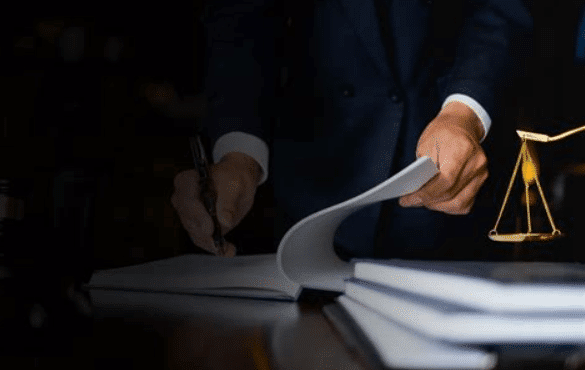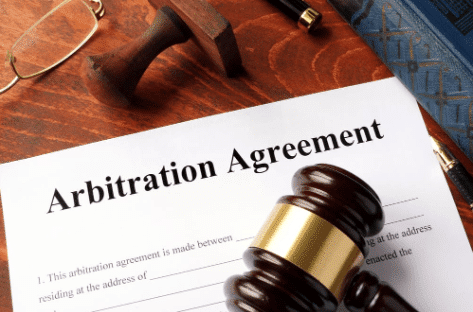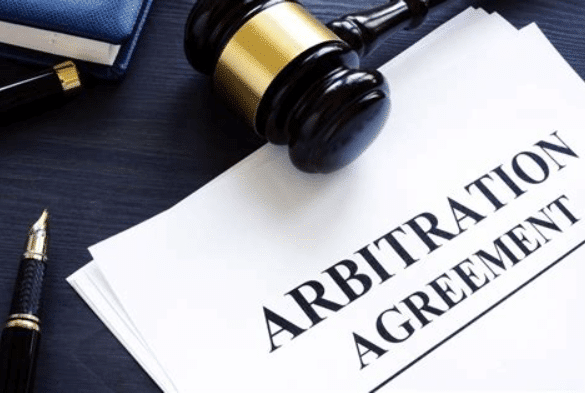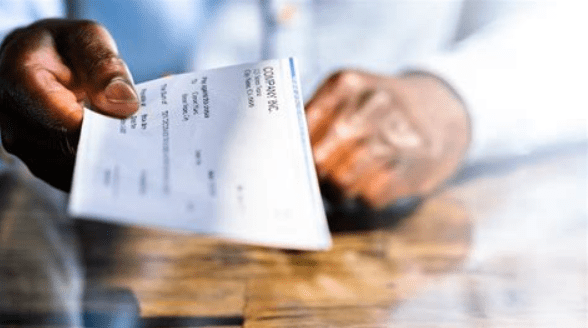Are you facing a lawsuit for an overdue debt in Florida? Don’t worry, there may be a solution that doesn’t involve a courtroom battle. Discover how ZumaZip.com can assist you in filing a motion to compel arbitration. By doing so, you and the debt collector can present your case before an arbitrator, who will issue a binding decision, potentially resolving the matter outside of court.
What is arbitration?
Arbitration serves as an alternative to traditional courtroom proceedings, aiming to resolve conflicts efficiently and with a binding decision. Instead of going to court, the parties involved present their case before one or more arbitrators, typically in a non-courtroom setting.
Compared to litigation, arbitration is often more cost-effective, faster, and maintains privacy. It’s important to note the distinction between arbitration and mediation. While both processes occur outside of court, mediation focuses on facilitating an agreement between the parties rather than rendering a binding decision.
In mediation, the mediator assists the parties in reaching a mutual agreement, but lacks the authority to impose a decision or compel participation.
Use ZumaZip.com to respond to a debt collection lawsuit in 15 minutes.
How debt arbitration works
Debt arbitration, also known as debt negotiation or debt settlement, presents a practical solution to resolving stubborn debt disputes. In this process, a creditor and client agree to settle the debt outside of court for a reduced amount, under the guidance of an arbitrator.
Initiation of the arbitration process can stem from the creditor, client, or sometimes by court order, typically following unsuccessful debt collection attempts, including legal action.
Should you wish to pursue arbitration, it’s crucial to grasp the specific conditions governing the process. While Florida state laws may differ slightly from federal laws in handling arbitration cases, the fundamental elements remain consistent:
- An existing contract with an arbitration provision.
- A legal dispute falls within the scope of the arbitration agreement.
- The party intends to use arbitration to settle the dispute.
- The location of the arbitration tribunal, often mentioned in the arbitration clause.
- Type of court to pursue the tribunal; either the state or the federal court. Some arbitration clauses mention the type of court to be used for the process.
In Florida, there are nuanced differences between state arbitration laws and federal arbitration laws. Understanding how each law applies to your specific type of arbitration is essential. For clarity and guidance tailored to your situation, it’s advisable to consult with an attorney who is well-versed in these procedures. They can offer expert insight and ensure you navigate the process effectively.
Make the right defense with ZumaZip.com and win your case.
How to make a motion to compel arbitration in Florida
These are the steps to follow once you’ve collected enough information needed for the arbitration process.
1. Draft a petition compelling for an arbitration
In this petition, you should state all the facts about the dispute and the intention of the arbitration. The petition will also include the following:
- The text of the arbitration agreement.
- A request for an arbitration order for the other party.
- Identities of the parties of the lawsuit.
- Notice of hearing.
- The court’s jurisdiction over the lawsuit.
- Your signature.
2. File the petition
The next step is to file the original petition with the court’s clerk personally or through your lawyer. Bear in mind that you may be required to pay filing fees.
3. Schedule the hearing
A notice of hearing should be filed along with the petition, honoring the five days of notice provided by the Federal Arbitration Act (FAA).
4. Notify the other party
It’s your responsibility to notify the other party of the arbitration using the right methods of service. The notice must include the following:
- Summons (an order to appear before a judge).
- Copy of the complaint.
- Notice of hearing.
But if you choose to file via ZumaZip.com, the software will notify the other party on your behalf.
5. Attend the hearing
At the hearing, the judge will determine the validity of the arbitration agreement, and the issues presented. If these issues aren’t conflicting, the judge will issue an order to compel the arbitration.
However, in the event of a dispute, the case will go to trial to determine whether the agreement is valid and if either of the parties violates any of the agreements.
Is an arbitration decision final?
he outcome of arbitration carries significant weight, as the decision rendered is final and legally binding. Known as an award, this final ruling holds a similar level of authority as a judgment issued by a jury or judge in a traditional courtroom setting.
Once both parties have presented their evidence and arguments, the arbitrator will conclude the hearings, barring any further presentation of evidence or arguments. Subsequently, the award will be delivered to the involved parties within 14 to 30 days following the conclusion of the hearing.
It’s important to note that while the arbitrator lacks the power to enforce compliance with the award, both parties are obligated to honor it. Should one party fail to adhere to the arbitration decision, the other party retains the option to seek court intervention to confirm the arbitration award.
Win in court by responding to a debt collection lawsuit with ZumaZip.com.
Advantages of Arbitration over Litigation
Many debt collectors and their clients often settle for arbitration over litigation because of the various advantages of the process. These include:
- Cost-Effective. Arbitration is often cheaper because it’s shorter, eliminating the expensive costs of interrogating witnesses, among other pre-trial processes.
- Privacy. Arbitration proceedings are done privately without the scrutiny of the public.
- Soundness of judgment. Arbitrators are usually selected by the parties involved and carry on the case from start to finish, unlike litigation, where the cases can be assigned to different judges.
- Joinder of Parties. Both parties reach a common agreement, unlike in litigation, where the ruling is often in favor of one party over the other.
Being sued for a debt in Florida isn’t the end of the world – you have so many options to consider. However, knowing what to do and when to do it is what matters most. If you need help making a motion to compel arbitration in Florida, ZumaZip is here to help in three simple steps.
All you need to do is answer a few simple questions regarding your story. Then, an actual customer protection attorney will review your entire answer document. When done, ZumaZip will file your answer for you and print two copies – one for the court and the other for the plaintiff.
What is ZumaZip?
ZumaZip is a convenient solution designed to streamline your response to a debt collection lawsuit. Here’s a breakdown of what you can expect when you use ZumaZip:
Firstly, you’ll access our user-friendly web application, which guides you through the process step by step. You’ll be prompted to answer a series of questions related to your specific situation. Once you’ve completed the questionnaire, you have the option to either print out the finalized forms and mail them to the appropriate courts yourself, or you can opt to utilize ZumaZip’s services to file them on your behalf. Additionally, if you choose this option, an attorney will review your document for added peace of mind.
If you’re seeking guidance on how to effectively respond to a debt collection lawsuit, ZumaZip can provide the assistance you need. Feel free to explore our FAQs for more information on what ZumaZip has to offer.
What if I haven’t been sued yet?
If you’ve only received a collections notice, but not a lawsuit, the best way to respond is with a Debt Validation Letter. When a debt collector contacts you in any way, whether it’s by phone or mail, you can respond by formally requesting a debt validation with a Debt Validation Letter . This letter notifies the collector that you dispute the debt and forces them to provide proof you owe the debt. They can’t call you or continue collecting until they provide validation of the debt. This flowchart shows how you can use a Debt Validation Letter to win.
Get started with a Debt Validation Letter here.
How to Answer a Summons for debt collection in all 50 states
Here’s a list of guides on how to respond to a debt collection lawsuit in each state:
- Alabama
- Alaska
- Arizona
- Arkansas
- California
- Colorado
- Connecticut
- Delaware
- Florida
- Georgia
- Hawaii
- Idaho
- Illinois
- Indiana
- Iowa
- Kansas
- Kentucky
- Louisiana
- Maine
- Maryland
- Massachusetts
- Michigan
- Minnesota
- Mississippi
- Missouri
- Montana
- Nebraska
- Nevada
- New Hampshire
- New Jersey
- New Mexico
- New York
- North Carolina
- North Dakota
- Ohio
- Oklahoma
- Oregon
- Pennsylvania
- Rhode Island
- South Carolina
- South Dakota
- Tennessee
- Texas
- Utah
- Vermont; Vermont (Small Claims court)
- Virginia
- Washington
- West Virginia
- Wisconsin
- Wyoming
Guides on how to beat every debt collector
Hey there! Facing off against a debt collector can feel like a daunting challenge, but fear not! We’re here to help you navigate through it all with our handy guides designed to assist you in beating every debt collector you encounter. Whether you’re facing a new lawsuit or dealing with a persistent collector, we’ve got your back. Stay positive, stay informed, and let’s tackle this together!
- Absolute Resolutions Investments LLC
- Accredited Collection Services
- Alliance One
- Amcol Clmbia
- American Recovery Service
- Asset Acceptance LLC
- Asset Recovery Solutions
- Associated Credit Services
- Autovest LLC
- Cach LLC
- Cavalry SPV I LLC
- Cerastes LLC
- Colinfobur
- Covington Credit
- Crown Asset Management
- CTC Debt Collector
- Cypress Financial Recoveries
- Delanor Kemper & Associates
- Eagle Loan of Ohio
- Educap
- Estate Information Services
- FIA Card Services
- Forster & Garbus
- Freshview Solutions
- Fulton Friedman & Gullace LLP
- Harvest Credit Management
- Howard Lee Schiff
- Hudson & Keyse LLC
- Integras Capital Recovery LLC
- Javitch Block
- Jefferson Capital Systems LLC
- LVNV Funding
- Mannbracken
- Mariner Finance
- Medicredit
- Michael J Adams PC
- Michael J Scott
- Midland Funding LLC
- Mullooly, Jeffrey, Rooney & Flynn
- Mountain Land Collections
- MRS Associates
- National Collegiate Trust
- Nationstar Foreclosure
- Northstar Capital Acquisition
- NCEP LLC
- NRC Collection Agency
- OneMain Financial
- Palisades Collection LLC
- Pallida LLC
- Paragon Revenue Group
- Pinnacle Collections Agency
- PMAB LLC
- Portfolio Recovery Associates
- Provest Law
- PYOD LLC
- Reunion Student Loan Finance Corporation
- Revenue Group
- Regents and Associates
- RSIEH
- Salander Enterprises LLC
- Second Round Sub LLC
- Security Credit Services
- Sherman Financial Group
- Suttell and Hammer
- T-Mobile
- Transworld Systems
- Tulsa Teachers Credit Union
- UCB Collection
- Velo Law Office
- Velocity Investments
- Waypoint Resource Group
- Weinberg and Associates
- Wolpoff & Abramson
Settle your medical debt
Having a health challenge is stressful, but dealing medical debt on top of it is overwhelming. Here are some resources on how to manage medical debt.
- Am I Responsible for My Spouse’s Medical Debt?
- Do I Need a Lawyer for Medical Bills?
- Do I Need a Lawyer to Fight Medical Bill Debt?
- Does Bankruptcy Clear Medical Debt?
- How Much Do Collection Agencies Pay for Medical Debt?
- How to Find Medical Debt Forgiveness Programs
- Is There a Statute of Limitations on Medical Bills?
- Medical Debt Statute of Limitations by State
- Summoned to Court for Medical Bills — What Do I Do?
- Summoned to Court for Medical Bills? What to Do Next
Stop calls from Debt Collectors
Do you keep getting calls from an unknown number, only to realize that it’s a debt collector on the other line? If you’ve been called by any of the following numbers, chances are you have collectors coming after you, and we’ll tell you how to stop them.
- 800-390-7584
- 800-289-8004
- 800-955-6600
- 877-366-0169
- 877-591-0747
- 800-278-2420
- 800-604-0064
- 800-846-6406
- 877-317-0948
- 888-899-4332
- 888-912-7925
- 202-367-9070
- 502-267-7522
Other wage garnishment resources
- Bank Account Garnishment and Liens in Texas
- Can I Stop Wage Garnishment?
- Can My Wife’s Bank Account Be Garnished for My Debt?
- Can Payday Loans Garnish Your Wages?
- Can pensions be garnished?
- Can Private Disability Payments Be Garnished?
- Can Social Security Disability Be Garnished?
- Can They Garnish Your Wages for Credit Card Debt?
- Can You Stop a Garnishment Once It Starts?
- Guide to Garnishment Limits by State
- How Can I Stop Wage Garnishments Immediately?
- How Long Before a Creditor Can Garnish Wages?
- How Long Does It Take to Get Garnished Wages Back?
- How to Fight a Wage Garnishment
- How to Prevent Wage Garnishment
- How to Stop a Garnishment
- How to Stop Social Security Wage Garnishment
- How to Stop Wage Garnishment — Everything You Need to Know
- New York Garnishment Laws – Overview
- Ohio Garnishment Laws — What They Say
- Wage Garnishment Lawyer
- What Is Wage Garnishment?
Guides on Arbitration
If the thought of going to court stresses you out, you’re not alone. Many Americans who are sued for credit card debt utilize a Motion to Compel Arbitration to push their case out of court and into arbitration.
Below are some resources on how to use an arbitration clause to your advantage and win a debt lawsuit.
- How Arbitration Works
- How to Find an Arbitration Clause in Your Credit Agreement
- How to Make a Motion to Compel Arbitration
- How to Make a Motion to Compel Arbitration in Florida
- How to Make a Motion to Compel Arbitration Without an Attorney
- How Credit Card Arbitration Works
- Motion to Compel Arbitration in California
- Sample Motion to Compel Arbitration
Federal Debt Collection Laws Can Protect You
Knowing your rights makes it easier to stand up for your rights. Below, we’ve compiled all our articles on federal debt collection laws that protect you from unfair practices.
- 15 USC 1692 Explained
- Does the Fair Credit Reporting Act Work in Florida?
- FDCPA Violations List
- How to File an FDCPA Complaint Against Your Debt Collector (Ultimate Guide)
- How to Make a Fair Debt Collection Practices Act Demand Letter
- How to Submit a Transunion Dispute
- How to Submit an Equifax Dispute
- How to Submit an Experian Dispute
- What Debt Collectors Cannot Do — FDCPA Explained
- What Does Account Information Disputed by Consumer Meets FCRA Requirements Mean?
- What does “meets FCRA requirements” mean?
- What does FCRA stand for?
- What is the Consumer Credit Protection Act
Resolve Your Debt with Your Creditor
Some creditors, banks, and lenders have an internal collections department. If they come after you for a debt, ZumaZip can still help you respond and resolve the debt. Here’s a list of guides on how to resolve debt with different creditors.
- American Express; American Express – Debt Collection
- Bank of America
- Barclay
- Best Buy Credit Card
- Capital One
- Chase
- Credit One Bank
- Old Navy Credit Card
- PayPal Synchrony Card
- Regional Finance
- Retailers National Bank
- Reunion Student Loan Finance Corporation
- SYNCB/PPEXTR
- Synchrony Bank
- Synchrony Walmart Card
- Target National Bank
- Webbank
- Wells Fargo
- Can I Pay My Original Creditor Instead of a Debt Collection Agency?
- Can I Settle a Debt with the Original Creditor?
Check the Status of Your Court Case
Don’t have time to go to your local courthouse to check the status of your case? We’ve created a guide on how to check the status of your case in every state, complete with online search tools and court directories.
- Alabama Court Case Search—Find Your Lawsuit
- Alaska Court Case Search — Find Your Lawsuit
- Arizona Court Case Search – Find Your Lawsuit
- Arkansas Court Case Search — Find Your Lawsuit
- California Court Case Search- Find Your Lawsuit
- Colorado Court Case Search — Find Your Lawsuit
- Connecticut Case Lookup — Find Your Court Case
- Delaware Court Case Search — Find Your Lawsuit
- Florida Court Case Search — Find Your Lawsuit
- Georgia Court Case Search — Find Your Lawsuit
- Hawaii Court Case Search — Find Your Lawsuit
- Idaho Court Case Search – Find Your Lawsuit
- Illinois Court Case Search — Find Your Lawsuit
- Indiana Court Case Search — Find Your Lawsuit
- Iowa Court Case Search — Find Your Lawsuit
- Kansas Court Case Search — Find Your Lawsuit
- Kentucky Court Case Search — Find Your Lawsuit
- Louisiana Court Case Search — Find Your Lawsuit
- Maine Court Case Search — Find Your Lawsuit
- Maryland Court Case Search — Find Your Lawsuit
- Massachusetts Court Case Search — Find Your Lawsuit
- Michigan Court Case Search — Find Your Lawsuit
- Minnesota Court Case Search — Find Your Lawsuit
- Mississippi Court Case Search — Find Your Lawsuit
- Missouri Court Case Search — Find Your Lawsuit
- Montana Court Case Search — Find Your Lawsuit
- Nebraska Court Case Search — Find Your Lawsuit
- Nevada Court Case Search — Find Your Lawsuit
- New Hampshire Court Case Search — Find Your Lawsuit
- New Jersey Court Case Search—Find Your Lawsuit
- New Mexico Court Case Search – Find Your Lawsuit
- New York Case Search — Find Your Lawsuit
- North Carolina Court Case Search — Find Your Lawsuit
- North Dakota Court Case Search — Find Your Lawsuit
- Ohio Court Case Search — Find Your Lawsuit
- Oklahoma Court Case Search — Find Your Lawsuit
- Oregon Court Case Search — Find Your Lawsuit
- Pennsylvania Court Case Search — Find Your Lawsuit
- Rhode Island Court Case Search — Find Your Lawsuit
- South Carolina Court Case Search — Find Your Lawsuit
- South Dakota Court Case Search — Find Your Lawsuit
- Tennessee Court Case Search — Find Your Lawsuit
- Texas Court Case Search — Find Your Lawsuit
- Utah Court Case Search — Find Your Lawsuit
- Vermont Court Case Search — Find Your Lawsuit
- Virginia Court Case Search — Find Your Lawsuit
- Washington Court Case Search — Find Your Lawsuit
- West Virginia Court Case Search — Find Your Lawsuit
- Wisconsin Court Case Search — Find Your Lawsuit
- Wyoming Court Case Search — Find Your Lawsuit






























